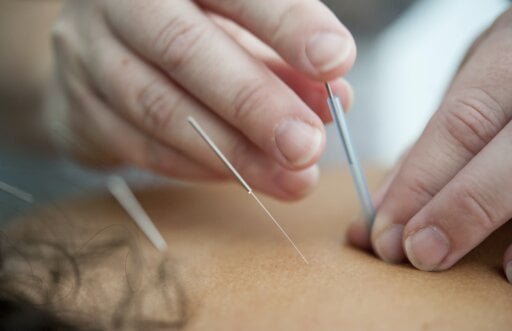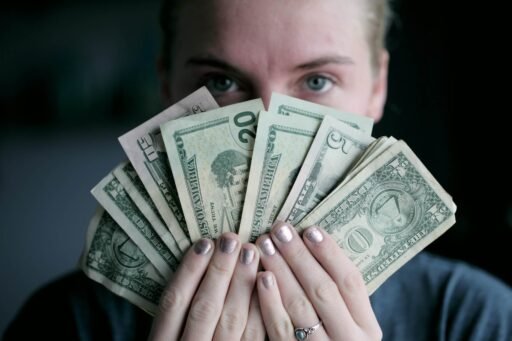If you’re feeling the weight of anxiety and searching for a solution that’s close by, acupuncture might just be the answer you’ve been looking for. With its roots in traditional Chinese medicine, acupuncture has emerged as a popular alternative therapy for treating anxiety. By gently inserting tiny needles into specific points on your body, acupuncture targets the imbalances that contribute to anxiety, promoting a sense of calm and relaxation. In this article “Acupuncture For Anxiety Near Me”, you’ll explore the benefits of acupuncture for anxiety and discover how you can find qualified practitioners nearby to embark on your journey towards a more tranquil mind and body.
What is Acupuncture?
Definition
Acupuncture is a traditional Chinese medicine practice that involves the insertion of thin needles into specific points on the body. This therapy is based on the concept of Qi (pronounced “chee”), which is believed to be the vital energy that flows through the body. Acupuncture aims to restore the balance of Qi to promote healing and overall well-being.
History
Acupuncture has a rich history dating back over 2,500 years in China. Ancient Chinese texts, such as the Huangdi Neijing (Yellow Emperor’s Inner Canon), discuss the principles and techniques of acupuncture. It was traditionally used to treat a wide range of ailments, including anxiety, pain, and digestive disorders. Over the years, acupuncture has gained popularity worldwide and is now widely practiced as a complementary therapy.
How it Works
According to traditional Chinese medicine, acupuncture works by stimulating specific acupuncture points along the body’s meridian pathways. These points are believed to be connected to different organs and systems in the body. By inserting needles into these points, acupuncturists aim to restore the balance of Qi and promote the smooth flow of energy. This stimulation is thought to trigger the release of natural pain-relieving chemicals, reduce inflammation, and improve overall well-being.
Anxiety and its Impact
Understanding Anxiety
Anxiety is a common mental health condition characterized by feelings of unease, worry, and fear. It can manifest in various forms, such as generalized anxiety disorder, social anxiety, or panic disorder. Anxiety can have a significant impact on a person’s daily life, affecting their relationships, work performance, and overall quality of life. It is important to understand the nature of anxiety and its potential causes to effectively address it.
Causes of Anxiety
Anxiety can arise from a combination of genetic, environmental, and psychological factors. Some individuals may have a genetic predisposition to anxiety disorders, while others may develop anxiety as a response to traumatic experiences or stressful life events. Imbalances in brain chemicals, such as serotonin and dopamine, can also contribute to the development of anxiety.
Effects of Anxiety
The effects of anxiety can be both physical and psychological. Common physical symptoms include rapid heartbeat, shortness of breath, muscle tension, and gastrointestinal issues. On a psychological level, anxiety may lead to feelings of restlessness, irritability, and difficulty concentrating. If left untreated, anxiety can significantly impact an individual’s overall well-being and hinder their ability to enjoy life to the fullest.
Acupuncture as a Treatment for Anxiety
How Acupuncture Helps
Acupuncture offers a holistic approach to treating anxiety by addressing the underlying imbalances in the body. The precise insertion of needles into specific acupuncture points stimulates the release of endorphins and other neurotransmitters that promote relaxation and reduce anxiety. Additionally, acupuncture helps regulate the autonomic nervous system, which plays a key role in the body’s stress response. By restoring balance in this system, acupuncture can alleviate anxiety symptoms.
Benefits of Acupuncture for Anxiety
Many individuals with anxiety have found acupuncture to be a beneficial treatment option. Acupuncture can provide natural relief without the potential side effects associated with medications. It is a non-invasive procedure that focuses on the whole person, aiming to restore harmony in both mind and body. In addition to relieving anxiety symptoms, acupuncture may also improve sleep quality, enhance mood, and boost overall well-being.
Research and Evidence
Numerous studies have explored the effectiveness of acupuncture in treating anxiety disorders. While more research is still needed, initial findings suggest that acupuncture may offer a complementary therapy for anxiety. A systematic review published in the Journal of Alternative and Complementary Medicine found that acupuncture showed promise in reducing anxiety symptoms. However, further research is necessary to provide conclusive evidence of acupuncture’s efficacy in treating anxiety.
Finding an Acupuncture Practitioner for Anxiety
Importance of Finding a Qualified Practitioner
When seeking acupuncture for anxiety, it is crucial to find a qualified and experienced practitioner. Acupuncture involves the precise insertion of needles, which requires knowledge of anatomy and proper technique. A qualified practitioner will assess your specific needs, provide personalized treatment plans, and ensure your safety throughout the sessions.
Choosing an Acupuncture Clinic
When choosing an acupuncture clinic, consider factors such as the practitioner’s credentials, reputation, and experience. Look for licensed acupuncturists who have completed the necessary training and certifications. It is also essential to find a clinic that maintains a clean and sterile environment to minimize the risk of infection.
Seeking Recommendations
Seeking recommendations from trusted sources, such as friends, family, or healthcare professionals, can be a helpful way to find a suitable acupuncture practitioner. Personal recommendations can offer insights into the practitioner’s effectiveness, bedside manner, and overall patient satisfaction. Additionally, you can also research online reviews and testimonials to gather more information about potential practitioners.
Preparing for an Acupuncture Session
Initial Consultation
Before your first acupuncture session, you will typically have an initial consultation with the practitioner. This consultation allows the acupuncturist to gather information about your medical history, current symptoms, and any previous treatments you may have tried. It is essential to be open and honest during this consultation to ensure the acupuncturist can tailor the treatment to your specific needs.
Dress Comfortably
During an acupuncture session, you may be asked to remove certain clothing items to access the acupuncture points. It is recommended to wear loose, comfortable clothing that can be easily rolled up or removed, allowing for easy access to the acupuncture points. This will contribute to a more relaxing and comfortable experience.
Avoid Certain Foods or Activities
In the hours leading up to your acupuncture session, it is advisable to avoid consuming heavy meals or alcohol. It is also recommended to refrain from vigorous exercise or strenuous activities that can leave you feeling exhausted or overheated. By avoiding these factors, you can ensure a more optimal state for your acupuncture treatment.
What to Expect During an Acupuncture Session
Needle Insertion and Sensations
During an acupuncture session, the practitioner will gently insert thin, sterile needles into the designated acupuncture points. Sensations experienced during acupuncture can vary from person to person. Some individuals may feel a slight tingling or mild sensation, while others may not feel anything at all. These sensations are typically minimal and temporary.
Duration of the Session
The duration of an acupuncture session can vary depending on the individual and their specific needs. On average, a session lasts approximately 30 to 60 minutes. The initial consultation may take longer, as it involves discussing your medical history and treatment goals.
Relaxation Techniques
To enhance relaxation during the session, acupuncturists may incorporate various relaxation techniques, such as soft music, dimmed lights, or guided imagery. These techniques aim to create a soothing atmosphere that promotes a state of calm and relaxation.
Safety and Side Effects of Acupuncture
Safety of Acupuncture
When performed by a qualified practitioner, acupuncture is generally considered safe. Licensed acupuncturists undergo rigorous training and adhere to strict safety protocols. The use of sterile, single-use needles ensures the prevention of infection and other complications. However, it is essential to disclose any relevant medical conditions or medications to the acupuncturist to ensure your safety during the treatment.
Common Side Effects
After an acupuncture session, you may experience some mild and temporary side effects. These can include slight bruising or soreness at the needle insertion sites. Fatigue or dizziness may also occur, but they typically resolve quickly. It is important to communicate any discomfort or concerns to your acupuncturist so they can address them appropriately.
Rare but Serious Side Effects
While rare, serious side effects of acupuncture can occur. These include injury to organs or tissues, nerve damage, or infection. However, these risks are extremely low when performed by a qualified practitioner who follows strict safety and hygiene protocols. It is crucial to choose a reputable practitioner and communicate any concerns or medical conditions prior to the treatment.
Cost of Acupuncture for Anxiety
Insurance Coverage
Insurance coverage for acupuncture varies depending on the insurance provider and policy. Some insurance plans may offer partial or full coverage for acupuncture treatments for anxiety. It is advisable to contact your insurance provider to inquire about coverage specifics, such as copayments, deductibles, and the number of covered visits per year.
Out-of-Pocket Expenses
If your insurance does not cover acupuncture for anxiety, you may need to pay out-of-pocket for the treatments. The cost of acupuncture sessions can vary depending on factors such as location, practitioner experience, and the duration of the session. It is advisable to inquire about the cost per session and any package deals or discounts that may be offered.
Payment Options
Many acupuncture clinics accept various forms of payment, including cash, credit cards, and health savings accounts (HSAs). Some clinics may also offer flexible payment plans or financing options to accommodate patients’ financial needs. It is recommended to discuss payment options with the clinic prior to scheduling your acupuncture sessions.
Conclusion: Acupuncture For Anxiety Near Me
Acupuncture is a time-honored practice that offers a holistic approach to treating anxiety. By targeting specific acupuncture points and stimulating the body’s natural healing response, acupuncture can help alleviate anxiety symptoms and promote overall well-being. When seeking acupuncture treatment for anxiety, it is important to find a qualified and experienced practitioner who can provide personalized care. By exploring the potential benefits of acupuncture, individuals with anxiety can take a proactive step towards finding relief and improving their quality of life.
Frequently Asked Questions:
1. Does acupuncture work for anxiety?
- Acupuncture has shown promise in reducing anxiety symptoms for some individuals. Its effectiveness varies, and individual experiences may differ.
2. What is the 3 3 3 rule for anxiety?
- The 3 3 3 rule involves taking three deep breaths, focusing on three things you see, and acknowledging three sounds around you. It’s a quick grounding technique.
3. Can acupuncture stop panic attacks?
- Acupuncture may contribute to managing panic attacks by promoting relaxation. However, it’s essential to consult with a healthcare professional for personalized advice.
4. Where do they put acupuncture needles for anxiety?
- Acupuncture points for anxiety may include the head, ears, wrists, and feet. The specific points depend on the individual’s symptoms and the acupuncturist’s assessment.
5. How quickly does acupuncture work for anxiety?
- The response to acupuncture varies. Some individuals may experience relief after one session, while others may require multiple sessions for noticeable effects.
6. What happens after acupuncture for anxiety?
- Post-acupuncture experiences vary. Some may feel relaxed, while others may experience increased energy. It’s essential to stay hydrated and observe your body’s response.
7. How I cured my panic attacks naturally?
- Natural approaches to managing panic attacks may include therapy, mindfulness, exercise, and lifestyle changes. Individual experiences and responses differ.
8. What are the best acupuncture points for anxiety?
- Acupuncture points for anxiety may include Shenmen, Kidney 3, Pericardium 6, and Spleen 6. The selection depends on the acupuncturist’s assessment.
9. Why is acupuncture so calming?
- Acupuncture is believed to stimulate the release of endorphins, promoting relaxation and reducing stress. It also may affect the nervous system positively.
10. How often should I get acupuncture for anxiety? – The frequency of acupuncture sessions varies. Initially, weekly sessions may be recommended, with adjustments based on individual progress.
11. Why can’t you shower after acupuncture? – It’s advisable to avoid hot showers or baths immediately after acupuncture to prevent potential irritation at the needle sites.
12. Is acupuncture good for anxiety and depression? – Acupuncture is considered by some as a complementary therapy for anxiety and depression. Its effectiveness varies, and it’s important to consult with healthcare professionals.
13. Can acupuncture reduce cortisol levels? – Some studies suggest that acupuncture may help regulate cortisol levels, contributing to stress reduction. Individual responses to acupuncture can differ.
14. Does acupuncture help with anxiety and sleep? – Acupuncture may contribute to better sleep by promoting relaxation and addressing anxiety. Its effectiveness varies, and individual experiences differ.
15. Why do I cry during acupuncture? – Emotional releases during acupuncture are normal. Acupuncture can impact emotions and energy flow, leading to various reactions, including crying.
16. What not to do after acupuncture? – Avoid strenuous activities, alcohol, and excessive heat after acupuncture. Stay hydrated and listen to your body’s signals.
17. What are the signs acupuncture is working? – Signs of successful acupuncture may include improved sleep, reduced pain, enhanced mood, and increased overall well-being.
18. What is the best massage for anxiety? – Massages like Swedish or deep tissue may help alleviate anxiety by promoting relaxation. Individual preferences and comfort levels vary.
19. Why do I poop more after acupuncture? – Increased bowel movements after acupuncture may be a response to the treatment’s impact on the nervous and digestive systems.
20. Why do I feel worse the day after acupuncture? – Some individuals may experience temporary discomfort or fatigue after acupuncture. This is typically transient, and overall well-being may improve with subsequent sessions.
21. Why do I pee after acupuncture? – Increased urination after acupuncture may be a response to improved circulation and the body’s natural processes.
22. What are the disadvantages of acupuncture? – While generally safe, potential risks include bruising, soreness, or infection at needle sites. It’s crucial to seek acupuncture from qualified practitioners.
23. What happens if an acupuncture needle hits a nerve? – Properly trained acupuncturists aim to avoid nerves. If discomfort or pain occurs during acupuncture, it’s important to communicate with the practitioner immediately.
24. How deep do acupuncture needles go? – Needle depth varies depending on the targeted acupuncture points and the practitioner’s technique. Generally, needles are inserted superficially, ensuring comfort and safety.



